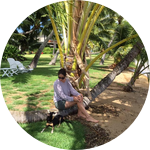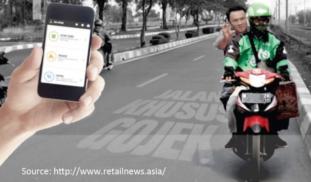Please wait...
About This Project
GO-JEK is a transportation service innovation that today is arguably Indonesia’s leading startup. Its inspiration was the humble ojek—the single passenger motorcycle taxi. Having rapidly diversified to also delivering various services, its proclaimed motto is “speed, innovation, and social impact.” I will explore GO-JEK's social impacts—livelihood security, access to services, social status—on its mostly low-income drivers in the city of Surabaya.






